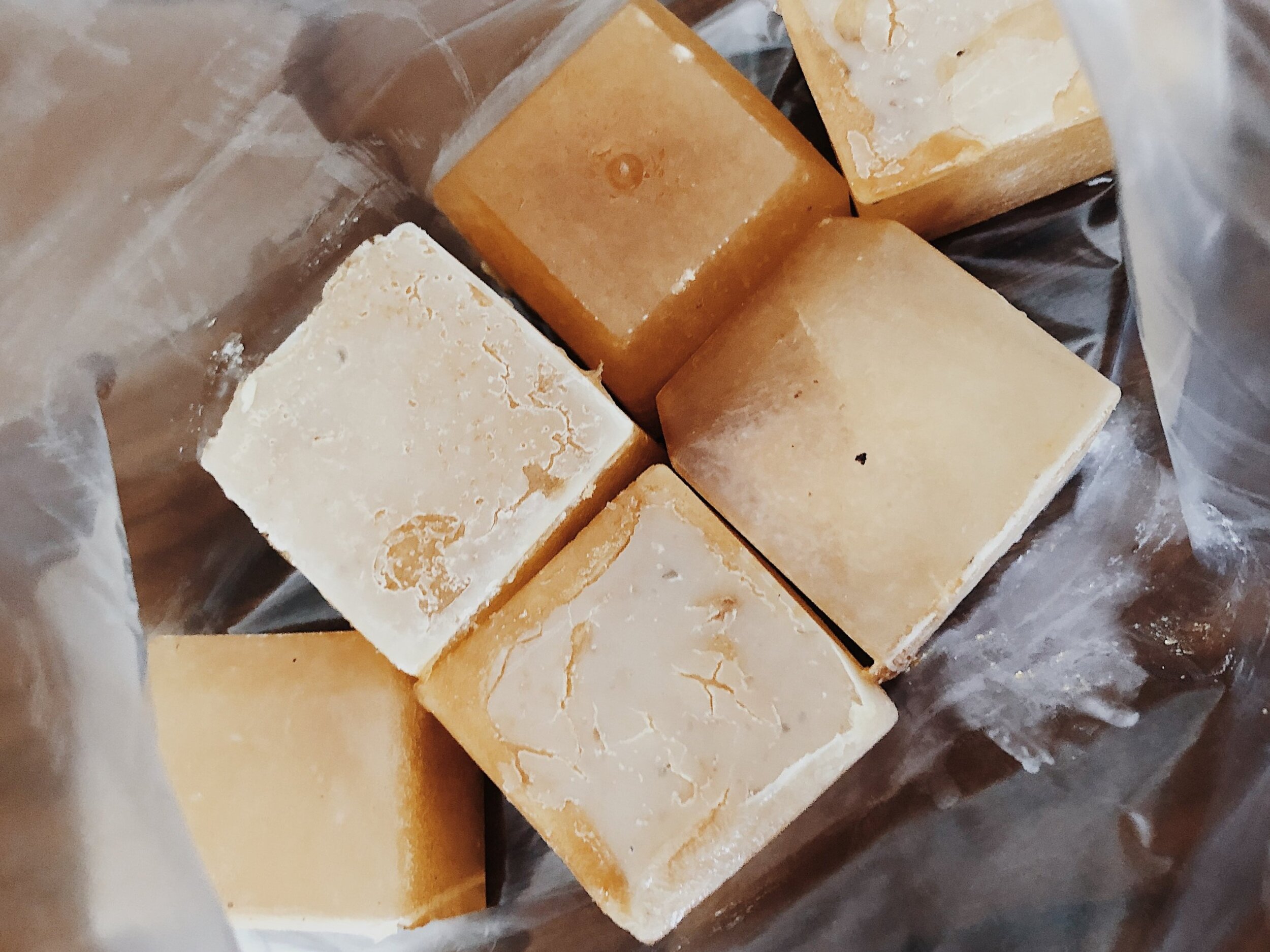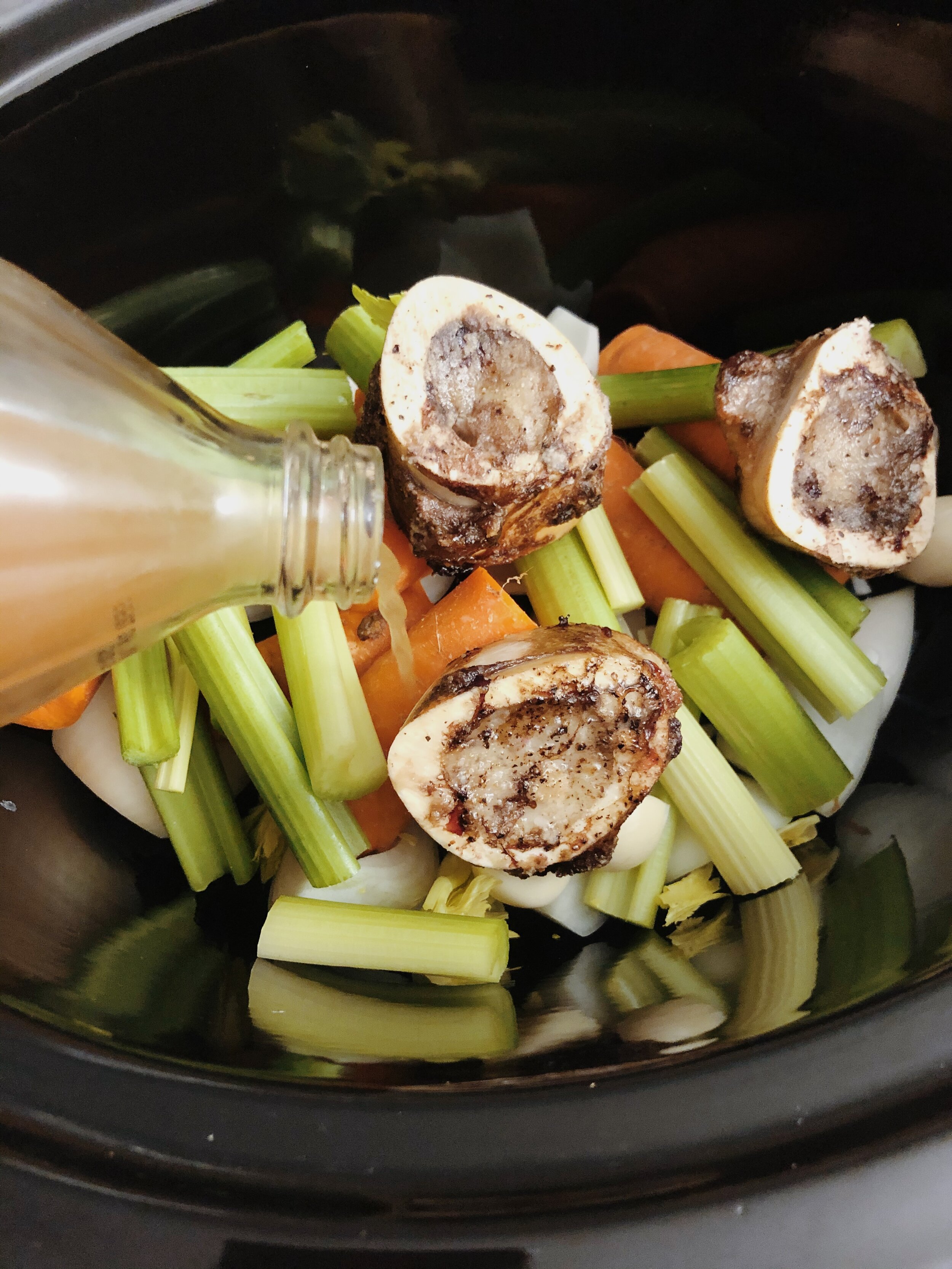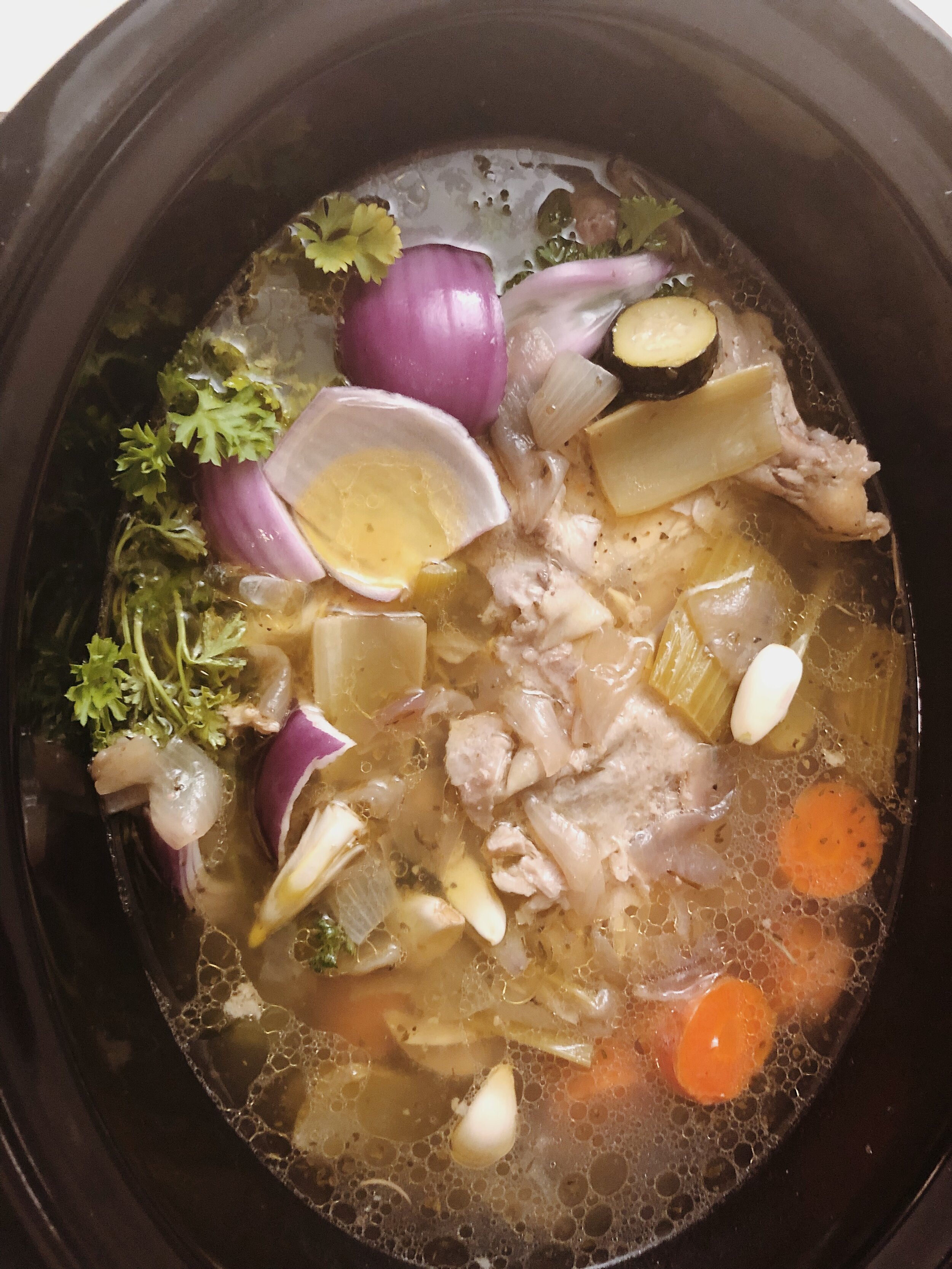Bone Broth Recipe
Bone broth is one of my favourite food medicines and it is so simple to prepare at home.
Bone broth, or more appropriately stock, is made by boiling bones with some form of acid in water very slowly and for an extended period of time. This creates a nutrient-dense liquid that can be consumed on its own, or used in the kitchen for things like soup, stews, etc.
It is so important to incorporate some sort of acid into your bone broth in order to promote the movement of more nutrients from the bone, into your broth. You can use apple cider vinegar, white vinegar, or lemon juice. The long, slow simmer, in addition to the acid, helps to pull as many nutrients from the bones as possible. The optimal simmer time, I would say, is around six to twenty-four hours to get the most nutrition out of your broth. Personally, 20 hours is my magic number, I find it works well with my schedule, and I can set my slow cooker to time it perfectly.
It is also important that you use organic, grass fed bones as often and as diligently as possible. Conventionally farmed animals have higher exposure to heavy metals, hormones, and other toxins that we should avoid putting into our bodies. Research evidently shows that grass fed animals have higher nutrition value than conventionally farmed animals. This makes a lot of sense when you think about it, just as our bodies are healthier when we eat properly and consume more nourishing foods, if livestock is fed all good, nutritious food, the animal itself will possess greater nutrition. Whenever possible, local, grass fed will always be the best option. When we support local farmers, we are also supporting a larger mission promoting the ethical treatment of animals, which is a huge factor in nutrition value if you ask me!
If you are plant-based, vegan, vegetarian and you are looking for bone substitutions, you can make super nourishing mushroom broth, however it will not contain the same health qualities that true bone broth carries. My husband and I don’t really have a label in terms of how we eat, but if I had to put a label on it, it would likely be closest to “Plant-Based” eating. The way we eat is very intuitive, so we eat what makes us feel good and supports our health, and we also incorporate more therapeutic food medicines such as bone broth and herbs. If you are plant based and you are wanting to try bone broth, consider speaking to a professional personally about your potential nutrition needs. I don’t want you to feel pressured to abandon your structure, but it would be worth speaking to a nutritionist to find out if that is the most suitable diet for your individual needs.
What are some of the benefits of bone broth?
1. Gut Health
Bone broth contains an array of beautiful essential and non-essential amino acids. Essential amino acids are not made by the body, meaning that we get them from our food. Non-essential amino acids are made by the body, but sometimes it helps to get some from food or supplementation for more therapeutic purposes. One non-essential amino acid that bone broth contains is L-Glutamine. Glutamine supports the health of your intestinal wall, in addition to supporting your immune system. Glutamine is a power-house gut healer, it is used by your muscle cells as an energy source and is extremely soothing. L-Glutamine also helps maintain the integrity and proper functioning of your white blood cells, a very important part of your immune system.
Bone broth is also extremely easy to digest, this makes uptake of vitamins and minerals quite seamless to your intestinal walls. This serves as a very supportive food medicine, and can be incorporated into fasting, but can also be used to give your gut some relief if you feel like you need a gut healing protocol (always seek a Nutritionists professional guidance when pursuing this option). Glowing skin goes hand-in hand with healthy digestion, so you will also reap the benefits of collagen-rich and nourishing broth through your skin!
2. Immune Health
The majority of your immune system is in the gut. Your gut flora, bacteria that reside in your intestines, help make up approximately 70% of your immune system…pretty cool, right? Therefore, it will come as no surprise that with maintaining a healthy gut = healthy immunity.
When you’re feeling under the weather, drinking lots of liquids is always a priority. Bone broth helps manage inflammation, so I always keep some frozen bone broth on hand (it helps to freeze them in small portions/cubes for easy access). This way, I can easily heat up some liquid gold and use it as a therapeutic aid in supporting my immune health, among other things of course!
3. Maintain Bone & Joint Health
Bones are made up of collagen and a perfect mix of calcium, phosphorus, magnesium, and other minerals. Cartilage is also made up of collagen and water, so we can see how important it is to support our body with healthy sources of collagen.
I have had some joint issues since I was quite young, my hips more specifically, and I found so much relief in supplementing with collagen, but also consuming bone broth regularly. As I also mentioned above, bone broth is extremely helpful in managing inflammation, this comes in handy with any sort of joint pain.
Ingredients:
Organic/grass fed bones (if using beef, be sure to roast the bones at 400 for 30 mins before using)
*I will typically use a full organic chicken carcass after I’ve cooked it and removed the meat
2 tbsp. Apple Cider Vinegar
2 Large Onions, cut into quarters
3 cloves of garlic (whole or crushed)
Salt and pepper to season
If desired, I will occasionally use celery and carrots, but this is optional
Directions:
In a slow cooker, place all the ingredients into the pot and top with water until full. Set to low heat for 20 hours (the typical maximum time for slow cookers). Once the timer has run out, give your broth a stir and let cool. Strain bones and veggie remains to be discarded and transfer your broth to mason jars or silicon reusable baggies to freeze. Freeze in divided amounts or store in the fridge for one week.



